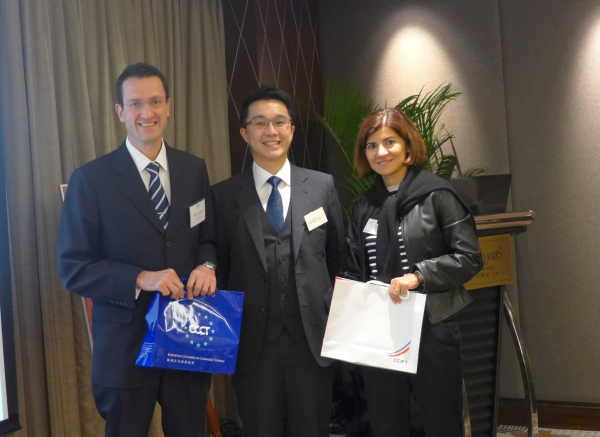Coface economist offers outlook for 2014

Tung expects the global economy to grow faster in 2014 than in 2013. While many corporations in the United States (US) have posted strong earnings in recent years and the overall economy has improved, unemployment remains a problem. The real US unemployment rate is higher than official figures because a lot of people have given up looking for work (US unemployment figures only take into account those actively looking for work).
Looking to Europe, Tung believes growth will remain robust in Germany but he is less optimistic on France, citing the persistently high number of insolvencies in that country. Moreover, France is still expected to post a current account deficit this year. This is in contrast to his expectations for the struggling economies in Southern Europe. While these economies are still not out of the woods, they are expected to post current account surpluses in 2014.
On Japan, Tung said that Abenomics (the economic policies introduced by Prime Minister Shinzo Abe's administration) have given "steam" to the economy (ie they stimulated consumption and investment growth), but the Jury is still out as to how effective the policies will eventually prove to be. Tung said that wages in Japan are now 3.5% lower than they were in 2008. There is also a risk that the Japanese authorities' plan to introduce a consumption tax in April this year could have an impact on economic growth. Coface expects Japanese GDP growth in 2014 to be lower than in 2013.
According to Coface's calculations as to what level of growth is needed to offset the expected level of insolvencies, the projected level of growth in most countries is not sufficient to offset the level involvencies. Countries where this is the case include the United States, France and the United Kingdom.
Tung expects China's GDP to rise by around 7.2% in 2014, inflation to remain high, interest rates to rise and credit growth to slow.
While debt levels in China are high, the level of China's external debt is low. However, there are some red flags given that the level of non-performing loans is rising and credit terms are being lengthened. This weighs heavily on balance sheets of creditors.
There are several industries with considerable overcapacity in China, such as the steel industry. The Chinese government is therefore preventing an expansion of steel industry capacity and it is possible that some steel mills will go out of business.
China's urbanization trend is expected to continue, especially in the west of the country but the authorities are likely to be smarter about development to try to avoid the phenomena of more ghost towns (overdevelopment in areas where there is insufficient demand) developing.
Among the challenges facing China and other emerging markets are a shortage of skilled labour and insufficient or poor quality infrastructure. Political instability is also a risk in countries like Thailand and Ukraine.
